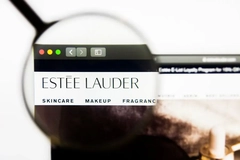Johnson & Johnson must pay US$15M to man claiming talc products caused cancer

Johnson & Johnson (J&J) has been ordered to pay US$15 million to a Connecticut, US, resident who said he developed mesothelioma after using the company’s talc powder for decades.
The plaintiff, Evan Plotkin, sued J&J in 2021 closely after his diagnosis, claiming that inhalation of J&J’s baby powder caused his cancer.
The Fairfield County, Connecticut Superior Court jury said the pharmaceutical company should pay additional punitive damages, which will be determined later by the judge overseeing the case.
“We will immediately appeal the erroneous rulings by the trial judge that prevented us from sharing critical facts with the jury that demonstrate the plaintiff’s exceedingly rare form of mesothelioma was not caused by talcum powder,” J&J said in a statement.

“Those facts show that the verdict is irreconcilable with the decades of independent scientific evaluations confirming talc is safe, does not contain asbestos and does not cause cancer.”
“Junk science”
Ben Braly, a lawyer for Plotkin, said in an email that they were thrilled by the results.
“Evan Plotkin and his trial team are thrilled that a jury once again decided to hold J&J accountable for their marketing and sale of a baby powder product that they knew contained asbestos.”
T J&J's talc baby powder has been accused of causing cancer.he company is currently dealing with more than 62,000 people who claimed they got ovarian and other gynecological cancers after using its talc products. J&J is trying to resolve the cases with a US$9 billion settlement in bankruptcy. The company maintains that its products do not cause cancer or contain asbestos.
J&J's talc baby powder has been accused of causing cancer.he company is currently dealing with more than 62,000 people who claimed they got ovarian and other gynecological cancers after using its talc products. J&J is trying to resolve the cases with a US$9 billion settlement in bankruptcy. The company maintains that its products do not cause cancer or contain asbestos.
“As we have steadfastly maintained, this litigation is the result of paid-for science fomented and financed by plaintiffs firms,” it says.
“This junk science has resulted in widespread misinformation, fostered unfounded fear, and distracted attention and resources from the critical work needed to better understand genetics and the other causes of spontaneous cancer and the development of interventions to improve survival rates.”
Previous accusations
J&J previously settled state consumer protection claims and talc-related claims in bankruptcy cases filed by its suppliers. The company still maintains that the claims pertaining to its talc are baseless, citing denials from specialists and authorities.
However, J&J withdrew its talc-based powder products from the US market in 2020. The company said it would halt sales of talc-based baby powder and transition to cornstarch-based baby powder to meet “evolving global trends.”
In June, Personal Care Insights reported on the company’s willingness to pay US$700 million to settle an investigation brought on by multiple US states.













